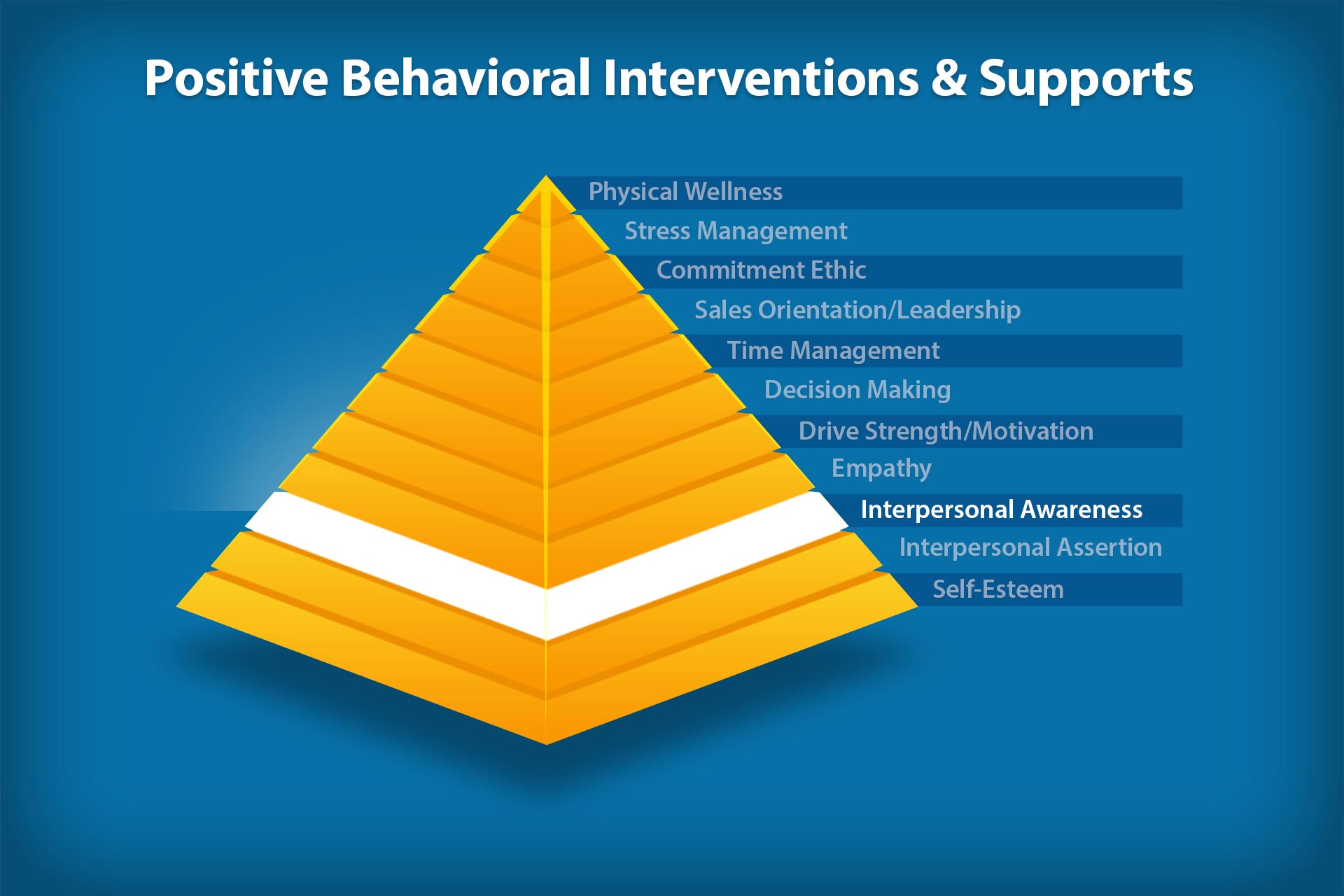
Assessing Social/Emotional Learning
In our blog on Self-Esteem and PBIS, we focused on the building blocks of social/emotional learning. For over 35 years, we at The Conover Company have been publishing evidenced-based assessments and skill-intervention systems for social/emotional learning. One of the most valid assessments for social/emotional learning is our Personal Skills Map which has over eight million administrations and over 140 doctoral level dissertations validating its efficacy. The Personal Skills Map scales are the building blocks for personal effectiveness. Using the results, you can begin to focus on what the individual needs to improve their social/emotional learning.

What is Interpersonal Awareness?
The third scale in this assessment is Interpersonal Awareness. Interpersonal awareness is the ability to show a true understanding of yourself and others and a deep knowledge of your own thoughts and feelings. It is a skill that helps us get along with others. It is also one of the basic building blocks upon which all other social/emotional skills are dependent upon.
Interpersonal awareness requires a belief that in your eyes, you are good enough to be accepted by yourself and others. Acceptance of self is necessary before one can learn to accept others; You must learn to like yourself before others can like you.
Try the exercise below to gain insight into the level of interpersonal awareness of your students.
Just knowing about Interpersonal Awareness isn’t going to translate into positive outcomes for your program. If you really want to see results, you need to apply this information in a way that will help the individuals you work with set goals, manage their emotions, and develop the workplace readiness skills they need to be successful in today’s information economy.
If you need help connecting PBIS to meaningful outcomes, we’ve developed social/emotional learning standards that you can download for FREE. These standards are research-based and organized by stage of life, so you can easily identify which skills to work on with your users or students.
If you’d like to download our soft skills standards you can find them here:
